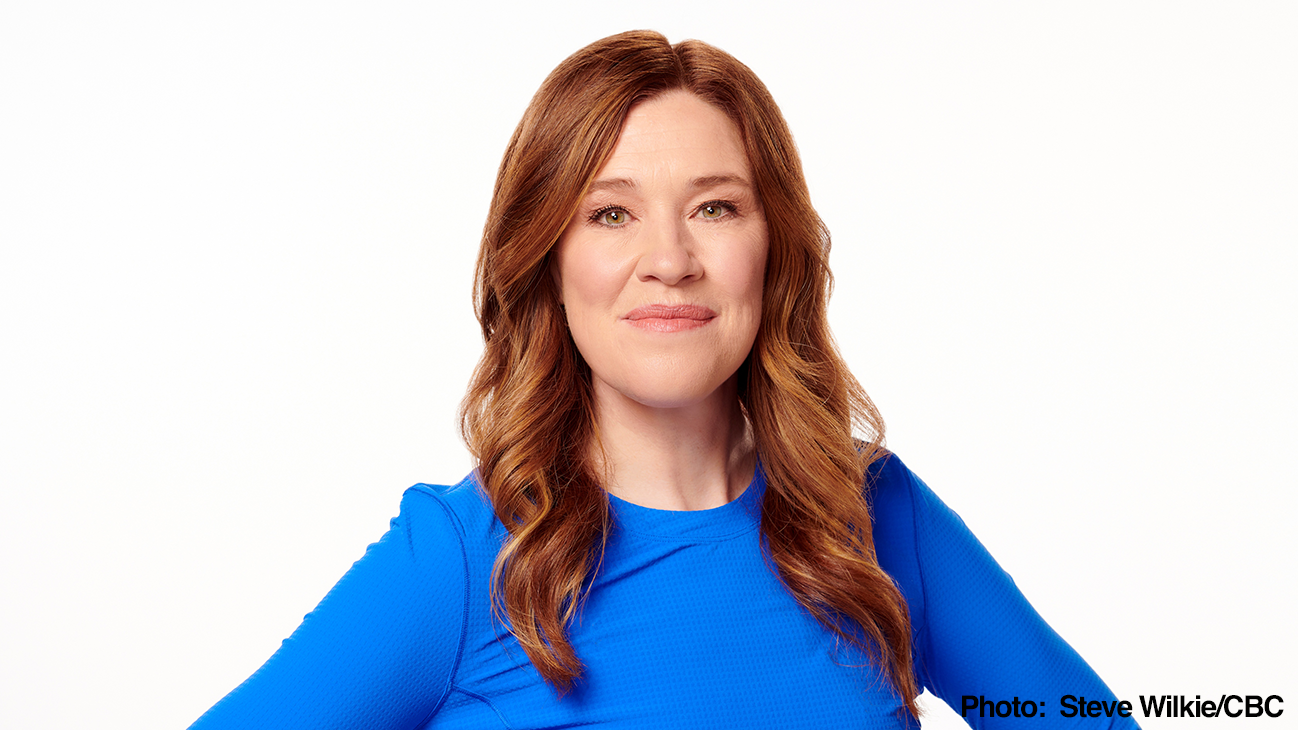Shorter days plus gloomy weather and long, cold nights is a recipe for the winter blues. Learn how to be proactive with your mental health this frosty season from Olympian and mental health advocate Clara Hughes.
Clara is the founding spokesperson for Bell Let’s Talk, an annual campaign designed to end the stigma surrounding mental health. As someone who has struggled with severe depression throughout her Olympic career, she understands firsthand how important it is to prioritize and support your mental health right alongside your physical health.
From reduced daylight hours to cold — and sometimes treacherous — weather conditions, winter is the toughest season on our mental health. Clara shared some of her favourite winter activities that help her prioritize and proactively maintain her mental health to beat those winter blues.
Acknowledge and Celebrate the Winter Solstice
While in the season of “less light” — when days are getting shorter, darker, and a little drearier — Clara makes a concerted effort to remind herself that with each passing day, we’re one day closer to winter solstice. From December 21st on, the days are getting longer with the promise of more sunshine. Purposely shift your thinking away from the negative — instead of worrying about those shorter days, look forward to the longer days ahead.
Coupled with this, Clara also makes a point to mark the winter solstice just as she celebrates the summer solstice. “I use it as a chance to let go of things that have been dark or heavy and lift the weight off my shoulders,” she says.
Jump on Those Pockets of Sunlight
Getting outside is crucial. I’m privileged to live on Vancouver Island, Clara said, which is the mildest place you can live in Canada. But we get a lot of rain in winter so if there is a glimmer of a break from the torrential downpour, she continued, I make sure to enjoy it whenever and however possible.
While physical activity outdoors is best, just immersing yourself in a natural environment — trees, mountains, forests, city parks, etc. — for as little as five minutes can boost your energy and uplift your spirits. This is what helps us through those difficult times in the winter.
Mindfulness in Movement
Being a former professional athlete and a lifetime athlete, movement is medicine for Clara. Physical activity is crucial to her mental health, as it is for many. Even when surgery or injuries kept her homebound, she found that just focusing on her breath, flexing that muscle and being mindful of its movement, was deeply medicinal for her. It shifted the trajectory of her day.
If weather is keeping you indoors, focusing on your breath for just a few minutes a day can feed your mental health in such a positive way, Clara said.
If you can get outdoors, Clara recommends you engage in any form of physical activity — call it a frosty reboot! It doesn’t have to be complicated. Dress warmly, take a walk, and inhale that cold crisp air to wake your body up. Clara likes to practice destination exercise, where she takes transit one way and then walks home. The easiest way to add movement to your day, she said, is by incorporating it into your day.
Find External Motivation
As an athlete, Clara said, the environment played a crucial role in my success. Of course I was self-motivated, she continued, but I didn’t just rely on inner motivation. I had my fellow athletes there to push me. It was an extrinsically fueled environment that facilitated training at the highest level.
In life after sport, Clara looks for that same extrinsic motivation, especially in the winter months. Whether it’s yoga, a hiking group, running group, etc., wherever you live there is a group of people doing what you want to do. Find that group, Clara said, sign up, and use extrinsic motivation to keep you moving through those long winter months.
It’s natural to want to hibernate over the winter season, Clara said, so look for ways to bust out of that hibernation cycle. Sometimes it’s easier to rely on others to give us that extra push.
Monitor Your Screentime
One of Clara’s favourite winter activities is to write letters to her friends, something she would never do in the summer. It gets those creative juices moving, plus she uses a manual typewriter to purposely give herself some screen-free time.
Self-monitoring your screentime is especially important in the winter, Clara said. She purposely chooses activities to keep her screen time at a minimum. For example, reading paper books vs. ebooks. Too often, she said, if we go to our phone to read or write something it will include a side trip to social media. When we’re stuck inside more, it’s important to be aware of our screen usage and choose activities that give us a break from it.
Set Boundaries
Lastly, Clara is a proponent for setting and maintaining boundaries, especially around the holidays. You don’t have to say yes to everything, Clara said, and you don’t have to say yes to anything if you don’t have the capacity for it.
Winter is the time to think critically about our mental health and make shifts that are sustainable and positive. Think of this as your opportunity to open up a conversation about mental health with others. You may be surprised about how much support you’ll receive in return, Clara said.
At any given time, we’re all dealing with different layers of stress and obstacles. The fundamental thing to remember, Clara said, is to go easy on yourself. Too often, we beat ourselves up for what we’re not doing, so this is your reminder to just do what you can within the constraints of what you’re dealing with. And, give yourself a pat on the back for all that you can do, even if it’s just one minute of breathing. That is worthy of a moment of self-appreciation, whatever the season.
As one of our top mental health speakers, Clara Hughes’ candid and uplifting keynotes explore her personal journey through physical and mental pain to a life where love and understanding can thrive. Drawing from her own experience living with depression, she shows audiences how the opportunity to heal is available to all, inspiring them to face their fears, find their voice, and become the champions they’re meant to be.




